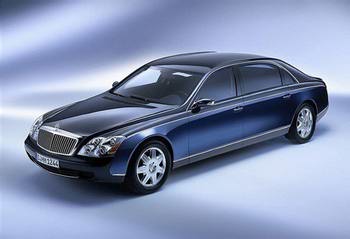Shijiazhuang Zhongjia Slurry Pump Co.,Ltd. , https://www.zjoemparts.com It is said that the future will continue to implement energy-saving vehicle subsidy policy, but the reporting standards and subsidy threshold will increase. In addition to the "cheat-up" behavior disclosed in the Auditing Department's previous energy conservation and environmental protection activities, apart from home appliance companies, auto companies may also be subject to restraint in the form of subsidies.
It is said that the future will continue to implement energy-saving vehicle subsidy policy, but the reporting standards and subsidy threshold will increase. In addition to the "cheat-up" behavior disclosed in the Auditing Department's previous energy conservation and environmental protection activities, apart from home appliance companies, auto companies may also be subject to restraint in the form of subsidies.
More stringent reporting standards
On July 12, the Department of Economic Development of the Ministry of Finance issued a survey and study titled "Energy Saving Products Benefiting the People's Project". The survey indicated that as of now the central government has allocated a total of 16.6 billion yuan in subsidy funds to support the promotion of energy-saving cars. More than 5.84 million vehicles have achieved remarkable results. With the entry of subsidies, the market share of energy-saving cars has increased substantially, and is currently around 210,000 vehicles per month.
While affirming the achievements of the energy-saving subsidies policy, the Department of Economic Development stated that the automobile energy-saving subsidies policy will be partially adjusted: “We must continue to do well in the promotion of energy-saving lamps, LED lights, and energy-saving vehicles, and adjust relevant policies in accordance with market changes. Measures to expand the effectiveness of the promotion."
According to experts, this adjustment should continue to raise the standard for the declaration of subsidies. “The standards and methods of subsidies should be improved based on past experience. The standards should be more stringent.†On July 15, Wang Binggang, an expert from the Ministry of Science and Technology's 863 program, said in an interview with reporters.
In fact, the energy-saving subsidies policy has raised the threshold once. In June 2010, the state began to implement energy-saving products to benefit the people, and then the policy was adjusted from October 1, 2011, the subsidy threshold from the average fuel consumption of 6.9 liters per kilometer to 6.3 liters, but the subsidy standard is still 3,000 yuan. But how to adjust this time is still unknown.
Containing "cheat" behavior
In addition to raising the subsidy reporting threshold, the automobile energy-saving subsidy policy is likely to make tit-for-tat arrangements for frequent car companies to “cheat upâ€.
When the Department of Economic Development of the Ministry of Finance mentioned the next step in the investigation and study, one of them was aimed at improving the energy-saving home appliance subsidy and pointed out that the future energy-saving subsidies should “simplify the subsidy payment procedures and effectively strengthen supervision of subsidy funds to ensure financial The subsidy funds are safe and efficient.†Analysts believe that it is clear that this is directly related to the audit announcement issued by the Audit Commission on June 20 for energy-saving projects. The announcement has criticized the fraudulent companies in the household appliances and auto industries.
According to the reporter's previous investigation, in fact, this announcement is only a microcosm of the various chaos since the implementation of the energy-saving subsidy policy. In the automotive industry, since the country implemented the energy-saving subsidy policy in 2010, it has been secretly in the process of implementation that there is a phenomenon of private companies cheating and defrauding state subsidies.
“This step work plan must be a response to the previous arbitrage incident. However, it should not only mention the household electrical appliance industry, but all industries, including automobiles, that are targeted at the energy-saving products and the Huimin project, should strengthen supervision to ensure that energy-saving subsidies are cut. Effectively fall into the hands of consumers to ensure that energy-saving promotion compensation is implemented to meet the energy-saving standards of the car.†Some industry sources said.